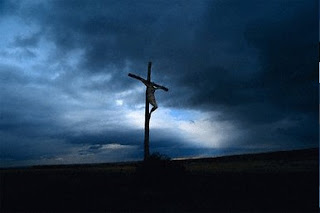On 4 April, Klaas Woldring wrote an article on Online Opinion about the apparent benefits of voluntary voting. I wrote a shortened response as a comment on the website. Comments on Online Opinion can be no longer than 350 words. Below is my full response.
The article by Klaas Woldring seems to be mainly about the electoral system rather than the negatives of compulsory voting.
He makes a number of points that, in my opinion, can easily be countered. Firstly, the motivation behind the ideas quoted by Hill, Louth and Hill, that exporting compulsory voting would reverse the rather modest decline in voter turn-out in countries which currently have voluntary voting is true. However, you can hardly compare exporting compulsory voting to the so-called ‘Pacific Solution’. I imagine that suggestion of comparing the issue of compulsory voting to this country’s immigration policy would also offend many people.
Woldring then states that the introduction of voluntary voting in Australia, resulting in a turn-out of 40-45 per cent, would increase the quality of the vote. This also may be true (and I emphasise ‘may be’). However, this is a generalisation and does not outweigh the negative consequences of having less than half the population vote. You could say that it is a true representation of what people really want because only those who really care would vote. I understand this point, but in a country with even our relatively small population of 20 million, it is more of an indictment on our political processes if more than half the eligible population don’t vote. Again, I believe we are talking more about the electoral system here than about the negative implications of compulsory voting. Additionally, Woldring’s statement does not take into account the fact that, with voluntary voting, many poor people would be less inclined to vote, as happens in other countries, not because they are disinterested, but because they would find it very difficult to get to a polling booth. With compulsory voting, the incentive to get to a polling booth is a lot stronger. And while I agree that knowledge of the political system, the Constitution, public policy, and so on, in Australia is appallingly deficient, once again, this is more an indictment on our political and educational processes than on the apparent pitfalls of compulsory voting.
Further on in his article, Woldring states that “many have had quite enough of the political system simply because they are compelled to vote for the major party candidates many of whom are not regarded highly at all, for many reasons.” However, no one is compelled to vote for the major parties. The higher vote for minor parties over recent elections shows this.
Woldring also states that compulsory voting forces the major parties’ policy programs to the centre of the spectrum and this has helped make them become look-alike parties. Forcing the major parties’ policy programs to the centre is actually a positive, as it highlights their policies and forces them to be scrutinised. One of the dangers that the ALP faces in the run up to this year’s Federal election is strong scrutiny of their policies. Many commentators are saying that, while the ALP’s primary vote is high at the moment, it is still to be really tested, and therefore many voters are still undecided about whether or not the ALP would make a credible alternative government.
The article by Woldring then goes on to the issue of longer and costlier election campaigns. He states that “arguments that major parties would have to mount longer and costlier election campaigns if voluntary voting was introduced, to get the voters out, are valid, but these are arguments against voluntary voting that benefit the major parties. More public funding is the remedy here, nothing less, if we take democracy seriously.”. However, major parties would benefit from more public funding here as well as they already have a much larger supporter base and attract much larger donations. The arguments of mounting longer and costlier election campaigns are more than valid; they are a major negative aspect of voluntary voting. In the US, they have a system whereby the candidates with the most money are the only ones with a realistic chance of being elected. Just in the last week we have seen that Hilary Clinton and Barack Obama have raised more than US$30million each for their respective campaigns. What chance does an intelligent, charismatic candidate have without millions of dollars worth of support? This is hardly democracy at work.
In the end, when we take all these arguments into account, we are talking about democracy, that is, government for the people and by the people. In most countries, voluntary voting means that at least half the population do not turn up to vote, as mentioned by Woldring above. When so few people turn up to vote, as a result of voluntary voting, we are making a mockery of democracy. If we take the 2000 US election as an example, we had a situation, in a country with voluntary voting, where, George W Bush received approximately half of the popular vote (although he won enough electoral college votes). The voter turnout for that election was 50%, more than Woldring mentions above when he talks about voter turnout being around 40 – 45%. Rather than voter quality increasing in that election, we had a situation where they now have a President who was elected by, at most, a quarter of the eligible voting population, and they call that democracy. Let us not take that route and damage the integrity of democracy in this country.




